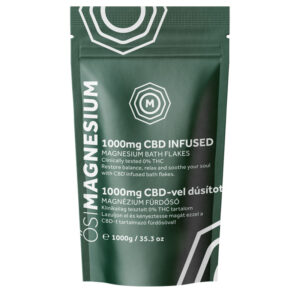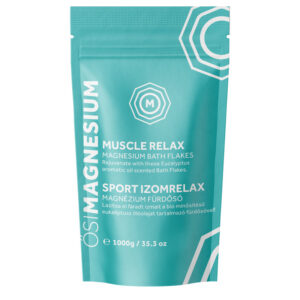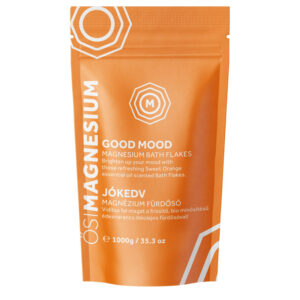Exploring effective hormonal acne treatment options is crucial for those affected by this challenging skin condition. In this comprehensive guide, we delve into the role of magnesium, a vital mineral that might be the key to unlocking new and effective treatments for hormonal acne.
Understanding Hormonal Acne
Hormonal acne, a condition often associated with hormonal fluctuations, can affect individuals well into adulthood, not just during teenage years. It typically manifests as painful cysts around the jawline and chin, making an understanding of its causes and treatments essential for effective management. Unlike other forms of acne, which might be attributed to external factors like diet or hygiene, hormonal acne is deeply rooted in the body’s internal processes, particularly the endocrine system.
This type of acne is primarily driven by fluctuations in hormones such as androgens, including testosterone, which can increase the production of sebum in the skin. Sebum is an oily substance that, when overproduced, can lead to clogged pores and acne.
For many women, these hormonal changes are closely linked to their menstrual cycle, pregnancy, menopause, or conditions like polycystic ovary syndrome (PCOS). Understanding these triggers is crucial, as it helps in tailoring treatment to not just address the symptoms of acne but also the underlying hormonal imbalances.
Moreover, hormonal acne is not just a physical ailment; it carries emotional and psychological implications. The appearance of skin can significantly impact self-esteem and mental well-being, making effective treatment all the more important.
It’s also worth noting that hormonal acne can behave differently than other acne types. It often responds less effectively to typical acne treatments, such as topical creams and cleansers, and may require more targeted therapies that address hormonal regulation.
In addition to hormonal fluctuations, other factors can exacerbate hormonal acne. These include stress, which can increase levels of cortisol, a hormone that can worsen acne, and certain lifestyle factors like diet and sleep patterns.
Therefore, a holistic approach to treatment, considering both medical and lifestyle interventions, is often the most effective strategy. By understanding the multifaceted nature of hormonal acne, individuals can take more informed steps towards managing their skin condition, leading to better outcomes both physically and emotionally.
What Causes Hormonal Acne?
Hormonal acne, a prevalent skin concern, is primarily driven by fluctuations in the body’s hormone levels. Understanding these triggers is key to managing and treating this specific type of acne effectively. Here are the main factors contributing to the development of hormonal acne:
Androgen Levels: Androgens are hormones such as testosterone that increase in both males and females during puberty. They stimulate the oil glands in the skin, leading to an increase in sebum production. Excess sebum can clog pores, creating a breeding ground for bacteria and leading to acne.
Menstrual Cycle: Many women experience breakouts of hormonal acne before and during their menstrual cycle. This is due to the fluctuation of estrogen and progesterone levels, which can trigger increased oil production and, consequently, acne.
Polycystic Ovary Syndrome (PCOS): PCOS is a common hormonal disorder among women of reproductive age and is often associated with acne. The condition leads to an overproduction of androgens, which can exacerbate skin problems, including the development of cystic acne.
Stress: Stress can significantly impact hormonal balance. It triggers the release of cortisol, a stress hormone, which can indirectly boost androgen levels, thus increasing sebum production and the likelihood of acne.
Dietary Factors: While the link between diet and acne is still a subject of research, certain dietary patterns may influence hormonal activity. High-glycemic foods and dairy products have been suggested to exacerbate acne in some individuals, possibly due to their impact on blood sugar and hormone levels.
Medications: Certain medications, including corticosteroids, testosterone, and lithium, can affect hormone levels and potentially lead to the development of acne.
Hormonal Changes in Adulthood: Women may experience hormonal fluctuations during various stages of adulthood, including pregnancy and menopause. These changes can trigger acne in those who may not have experienced it during adolescence.
Genetic Factors: There’s also a genetic predisposition to acne. Individuals with a family history of acne, particularly hormonal acne, are more likely to experience it themselves.
Understanding these triggers is a vital step in managing hormonal acne. It’s not solely a problem of skin hygiene or lifestyle choices; it’s deeply rooted in the body’s hormonal processes. This knowledge empowers individuals to seek targeted treatments that address not just the symptoms, but also the hormonal roots of their acne.
What are the Symptoms of Hormonal Acne?
Hormonal acne, a specific type of acne, exhibits distinct characteristics that set it apart from other forms of acne. Recognising these symptoms is key to understanding and effectively treating this condition. Here are the primary symptoms associated with hormonal acne:
- Location on the Face and Body: Hormonal acne typically appears in the lower part of the face, especially around the jawline and chin. It can also occur on the neck, back, and shoulders, areas that are rich in oil-producing glands.
- Type of Breakouts: This form of acne often presents as deep, cystic bumps. These are not your typical blackheads or whiteheads but are rather painful, inflamed lesions that are embedded deep within the skin. They are more likely to lead to scarring due to their depth and severity.
- Timing of Breakouts: Hormonal acne is often linked to the menstrual cycle in women. Many women report experiencing flare-ups or worsening of their acne in the days leading up to their period, a time when hormonal fluctuations are at their peak.
- Persistent Acne into Adulthood: While acne is commonly associated with teenagers, hormonal acne frequently persists or even starts in adulthood. Adults in their 20s, 30s, or even 40s may experience hormonal acne, often linked to hormonal changes or imbalances.
- Resistance to Conventional Acne Treatments: Hormonal acne may not respond well to typical acne treatments, such as over-the-counter topical products. This resistance is due to the acne’s hormonal underpinnings, which require more targeted treatment approaches.
- Other Signs of Hormonal Imbalance: Individuals with hormonal acne may also exhibit other symptoms of hormonal imbalances, such as irregular menstrual cycles, hair loss or hair growth in unusual places, and weight changes.
Magnesium and Skin Health
Magnesium, an essential mineral in the body, plays a significant role in maintaining skin health. Its anti-inflammatory properties are particularly beneficial for reducing acne-related redness and swelling. Additionally, magnesium aids in hormonal regulation, which can be crucial in mitigating the frequency and severity of hormonal acne outbreaks.
Hormonal Acne Treatment Options
A multifaceted approach is often required for effective hormonal acne treatment. Here are some key strategies:
- Topical Retinoids: These are not only effective in unclogging pores but also help in reducing inflammation, making them a cornerstone in acne treatment.
- Oral Contraceptives: Particularly beneficial for women, these can help balance hormones and are often prescribed for persistent acne.
- Anti-Androgen Drugs: These medications reduce the effects of male hormones on the skin, which can be a significant factor in hormonal acne.
- Oral Antibiotics: Useful in reducing inflammation and bacteria, they are often part of a treatment plan for moderate to severe acne.
- Chemical Peels: By removing dead skin cells, chemical peels can significantly improve skin texture and reduce acne occurrence.
- Laser and Light Therapy: This modern approach targets acne-causing bacteria and reduces oil production, offering a non-invasive treatment option.
- Dietary Adjustments: Incorporating a diet low in dairy and high-glycemic foods can aid in hormone regulation and, consequently, acne reduction.
- Stress Management: Effective stress management, through practices like yoga and meditation, can positively impact hormonal balance and skin health.
Hormonal Acne Supplements
Incorporating supplements can significantly enhance hormonal acne treatment by providing essential nutrients:
Magnesium (OsiMagnesium Products): Products from OsiMagnesium, rich in magnesium, can reduce inflammation and aid in hormonal balance, making them a valuable addition to acne treatment routines. A scientific study found that skin problems heal much faster when topically treated with magnesium salts. The external application of caustic salt, or magnesium sulfate, can relieve inflammation, reduce swelling, exfoliate the skin, and loosen blackheads.
Zinc: This mineral reduces skin inflammation and bacterial growth, playing a crucial role in maintaining clear skin.
Omega-3 Fatty Acids (Fish Oil): Known for their anti-inflammatory properties, they can also help regulate hormones, contributing to acne reduction.
Vitamin D: A deficiency in Vitamin D is common in acne sufferers; supplementing it can improve overall skin health.
Probiotics: By supporting gut health, probiotics indirectly contribute to healthier skin and can be beneficial in managing acne.
Spearmint Tea: Its anti-androgen properties make it a natural choice for balancing hormones and reducing acne.
Herbal Supplements (e.g., Vitex): These can offer natural hormonal balance support, aiding in long-term acne management.
Lifestyle Factors and Hormonal Acne
Balanced Diet: A diet rich in fruits, vegetables, and lean proteins can support skin health and hormonal balance.
Hydration: Adequate water intake is essential for detoxifying the body and maintaining skin hydration, which is crucial for acne prevention.
Regular Exercise: Exercise not only reduces stress but also helps in maintaining hormonal balance, both of which are beneficial for acne-prone skin.
Adequate Sleep: Quality sleep is vital for hormonal regulation and can significantly impact skin health.
Skin Hygiene: Regular, gentle cleansing and using non-comedogenic products can prevent pores from becoming clogged, a key factor in acne development.
Avoiding Triggers: Identifying and avoiding personal acne triggers, whether certain foods or stressors, is crucial in managing hormonal acne.
Incorporating magnesium, especially through products like those from OsiMagnesium, offers a promising avenue in the treatment of hormonal acne. By addressing the condition from multiple angles, including diet, lifestyle, and skincare, one can create a comprehensive plan for managing hormonal acne more effectively.
Links used to support the blog post:
https://pubmed.ncbi.nlm.nih.gov/28128074/
https://pubmed.ncbi.nlm.nih.gov/22386050/
https://www.ncbi.nlm.nih.gov/pmc/articles/PMC5821157/
https://jamanetwork.com/journals/jamadermatology/fullarticle/2593033
https://bmcdermatol.biomedcentral.com/articles/10.1186/1471-5945-12-13





